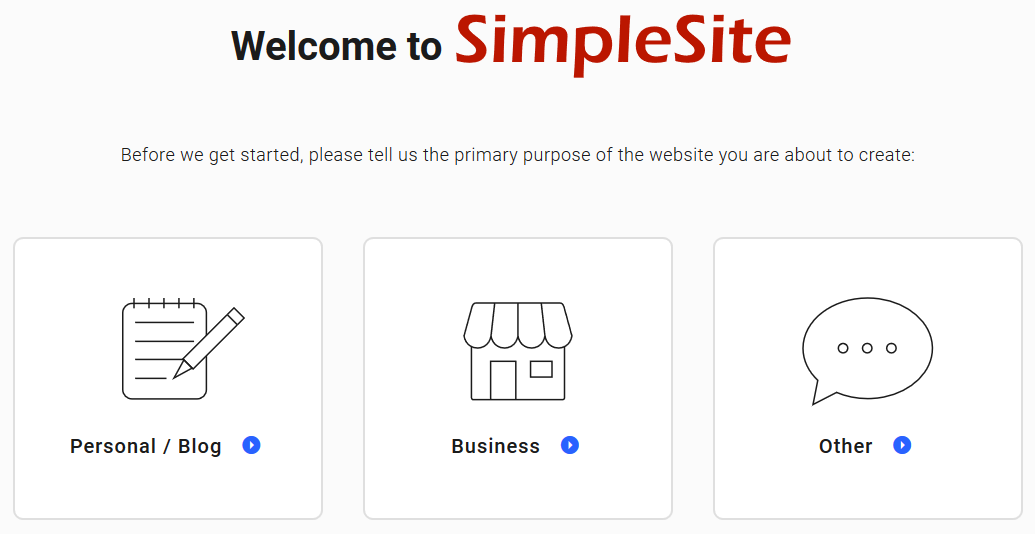Present Yourself on the Web: Run a Blog!
 Do you have a nice hobby? A sound, craggy opinion about any symptom, event, process or even a special field in science? Are you ready to publish your opinion weekly or even day-by-day?
Do you have a nice hobby? A sound, craggy opinion about any symptom, event, process or even a special field in science? Are you ready to publish your opinion weekly or even day-by-day?
Do you also have willingness to answer comments reflecting to your opinion?
A „Blog” is a written platform, a webpage, a special channel, a personal “digital diary” and a (rather free) service on the web to do this. Earlier these texts, short messages, memos which were regularly, periodically published about a narrow topic had a name „web-log”, but users prefer shorter words and now we say simply „Blog”, „Blogging”, „Blogger”, etc.
Content of a blog can be anything – it can be a digital magazine discussing more topics or can be a personal diary talking about your everyday life, even a personal, or common published opinion of a political group. Collectors of a special thing can have a dialog on your blog, it can serve as a showcase for your hand-made art, one can share special information through a blog, or continue a teaching course, … well, almost anything you want it to be. Even it can serve your (or your family) business: in this case it can present your competencies, products, services, business references and can be a strong tool in your marketing strategy and branding.
A typical blog combines text, images, videos, and links to relevant webpages and/or media on the Web. Readers can leave comments, can form a “community of interest ‘COIN’ network”, and communicate with the author, if they like – or simply „listen” what others do and write.
Also important: a blog can be public, opened for all, or the owner can restrict access, practically inviting people to a closed discussion group.
A blog normally is to be refreshed regularly, new messages, comments, news, article should appear in a „time line” thus readers can follow how a discussion is progressing in time. If this is the structure selected, visitors entering the website can face with the most fresh comment, the last message, as if it were a „newspaper” headline list.
Instead of teaching about blogging, here the BESS project simply describes you how easy it is
- to define and create a new blog,
- to find a free service to support publishing your opinion regularly,
- to receive / respond to comments and
- to build and develop your blog to have more (active) readers and visitors.
Be secure: blogging (technically) is easy – but, of course, no one can guarantee your blog will attract thousands reading and commenting. This is your turn to form your topic, the style and content of blog messages interesting, charming, challenging to reach high publicity and reactions.
Be a hard-worker, be patient – and have public success sooner or later!
First: Check a working blog!
BESS has been working to support elders. Our idea has been seniors would be supported by their young relates, family members: this is the moment to ask them to participate!
Here we present you a relatively successful blog in your homeland, and another (an English/ German speaking one) from abroad: we do hope your young supporter is ready to escort you hand-in-hand to explore the blog-world!
Learn: 80% of web-users are only „listen”, i.e. they read the notes but do nothing else. Another 10% sometimes send a comment, and only 10% is acting regularly, messaging-answering-questioning. Start with listening together and enjoy the bloggers’ world!
|
Let’s start with a Hungarian “grandparents’ blog”: https://babavidek.cafeblog.hu/ . Simply click on the web-address (the link above). The fresh content (short articles) appear in front, latest comments in the right corner, and we can go back on a time-line “Archivum” on the right column. Works? Yes. Simple? Yes. Would like to react? Jump to the right column: one can write a comment with simply clicking on the “Message to the blogger/Üzenet a szerzőnek” sentence. |
|
Topics are organized under some sub-menus and below you can find the most popular keywords which help to jump directly to your interest area.
|
Second: Why are you starting a blog? Find a niche!
Publishing your idea in written form (or more: with images, videos, live chat) is nothing else than a natural wish, a desire to communicate with people around you. A person feels her/his thoughts, experiences, advises could have an impact on others – why not to use the freedom of free-publishing on the Net? In old times writing a book was a privilege – later editors, printing houses, sponsors decided whether an “author” could step on the stage. Today – positive or negative, decide – anyone can do it. “Publicity decides” – if the community is not “listening” to your published ideas, or the law says this is harmful (or even prohibited) content to the public - better to close the shop.
Below BESS offers you the most frequent reasons to start a blog: make your choice!
Don’t forget: millions of blogs exist. Check first your planned topics and try to find a niche: which others do not discuss or do it very poor, meanly. Similar as seeking for a startup idea: nobody needs a second Yahoo or Facebook from you.
You have to figure out who your ideal readers are: seniors, young ones, singles, professionals – few or many? Niche blogging is creating a blog to advertise to a particular market. So pick the one that appeals to you - the one you are passionate about and most interested in. Strive for success, happiness, and recognition. By choosing a good niche of interest and having your own point of view, you’ll be able to differentiate your personal blog from the competition.
“Personal” blog themes – for all seniors feeling to have valuable ideas for others
|
Me, personally |
What happens to me, look how I live, where, with whom, etc. A bio. |
|
My theme |
A special theme, which you feel you are an expert in. Your success. |
|
My profession |
A working experience, professional success stories, recommendations |
|
Me and my friends |
Having a vivid group of friends around you, publish what you do/feel |
|
News as I see them |
Local / global “comment news” blog: your opinion, advices, messages |
|
Politics and me |
Local / global political messages: analysis, opinion, more facts, etc. |
|
My pictures, videos |
Special life / profession / family / locality: a collection of images |
|
Recipes, practices |
Everyday, “home-grown” word-of-advices on anything like cooking |
|
I am a fan of… |
Collect your friends, publish opinion on what you are fans of |
|
See my lists |
Ranking lists and explanations on any topic (movies, books, people…) |
|
How to do it |
A “guru” offers helping guides, instructions to solve a problem |
|
My case studies |
“How I did when…” from baby-caring to building a house |
|
Product reviews |
Your experiences with products, services, companies - categorized |
|
Cultural reviews |
Your (expert?) opinion about films, books, events, etc. |
|
My research |
Your (very) special research finding on a topic (history, city, etc.) |
|
Anything else? |
Seek the Web: find hundreds of themes: create a new one! |
“Business” blog themes – for those seniors running a small company
|
Our business |
Short sentences, comments, how to have access, main products |
|
Testimonials |
What others say, comment, message on our business |
|
Our profession |
Less on the business, but more on why this industry is important |
|
How we do it |
Presenting our work, facilities, people, references, cases |
|
Interviews, articles |
Others write articles, or speak about your business in short video shots |
|
Teaching course |
Text/video either on your business, or in any expertise you have |
|
Micro-blog service |
Open it for your business: very short messages, comments from clients |
Things your selected content should do
1. According to the “blogging idea” your selected content should speak to a specific audience and should provide some “value”, new information. A blog is not created and written for you, yourself (better to listen to music or cultivate the garden): you publish for a special community. You intend to give value for them and would like to be happy if they respond: “Hey, friend, this is really useful, just go on!”
2. The content you publish should be easily accessible and attractively presented, too. Here comes the BESS idea: ask for help from your younger supporters to enhance quality of presentation. The Web offers hundreds of solutions: find and use these.
3. The blog is about you – do not focus only onto any business. Ads, pop-up windows, direct banners and commercial messages frighten your readers away very soon. Greet your visitors them with your personal content and try to engage them with your strong personal attitude. Senior have commercials enough: no need to be another one.
As a blogger, you are advised to remember that the delivery method is less important:
what counts is the content and its quality:
- First state your main idea and point you are covering
- Second prove, give examples, evidences you have found
- Give readers a simple way to execute the idea, follow what you have offered.
Good to open with a pre-launch content besides your day-by-day posts. Write a static
“About me and my blog” and “Contact” or “Write to me” section, have a Footer with
basic data about you.
As the blog is started, write posts: this is normally a short entry (an “article”) authored by you. Always show, whether the text is original, or imported from somewhere else – give the source, if this is the case. Fresh (regular) posts keep the blog alive. But there are some “evergreen” contents too, articles, data which are essential, and people (and you, too) would like to remember for long time. Keep these somewhere, accessible on the site.
A closing word: there are types of content which are hazardous. Avoid “hot topics” like debated politicians, crime, violation, sexual aberrations, and similar. Some themes are explicitly prohibited by law to publish on forums like a blog: minorities, incitement against government, the country, nations, gender, etc. - do not try to start an unlawful, illegal issue to avoid very bad consequences.
Third: Choose a blogging “platform” service on your language
A platform is a service on the Internet, which gives you tools to simply create and manage your blog on the net. The company in the background is called a “host”. You have the following options: free and self-hosted. Free platforms normally need your email address and nothing else: in exchange the web-address, your “domain-name” will contain their company name (e.g. www.BESS-BLOG.simplesite.com ) and some commercials may occur, or the offer is limited in service complexity, as usual in any “free” Web-services. These “hosts” are interested to attract more visitors – this is the reason they offer you free service. When you select a general blog theme and the background (free) host is popular, these services could be a benefit as developing your publicity.
The most popular free platform is the WordPress.com: 96% of US bloggers use this.
You can find free platforms easily, like:
www.V4.simplesite.com “Create your own blog in 3 minutes” (in 16 languages)
https://www.blogger.com “Publish your passions, your way” (formerly blogspot by Google)
https://medium.com „Expand your reading”,
https://www.wix.com „Create a website you’re proud of” , etc.
By keeping your blog on a free platform, you let the platform own your name, you should follow their rules an d restrictions, and the content will be stored (“hosted”) on their computers. They “listen”, and can limit or even prohibit your business activity, too.
d restrictions, and the content will be stored (“hosted”) on their computers. They “listen”, and can limit or even prohibit your business activity, too.
A self-hosted platform (sometimes called CMS, Content-Management-System) allows you to run a blog using your own domain-name, and (as you pay for) you will be fully in charge of your blog and its contents – use as you like. If your topic is publishing copyrighted material, sensitive information, photos, artifacts, and, of yourse, if you sell and buy on the Net, look for this solution. The most popular platform like this is WordPress.org (used 99% in the US), and the fee for an Internet provider (like Bluehost, 99% in the US) is a few dollars per month.
All computers linked to the Internet have a unique address (the IP Internet Protocol number). This confusing special number is “masked” with a normal “name” which is easy to remember and to type to the browser. This is called a “domain-name”, like www.cnn.com . Selecting a good name people using search engines like Google or Yahoo will find you easily. As you pay for registering a “speaking” domain name from a national/local service-provider company, you will have a secure background storage to keep all your content and anyone on the Net will have access to your blog. This would cost 10-15 EURs per year for you.
Fourth: Start promoting your blog
Again: Not the technology you use, but the content will draw your audience. If no one sees your blog, all your work is in vain. Marketing and promotion happen every time you engage with your current and future readers. The success of your blog promotion will depend on the ability to engage in your niche. Some basic advices:
- Let your friends know about your blog activity
Inform everyone you know about your new creation: give the blog name and URL in your email signature, place it on your social media profiles, show them it live.
- Try to submit your blog to a search engine
These services create an “index” on a website and people searching for topics will find your address on the list. Check your favourite engine (like Google) how to do
- Be active in your niche and on social networks
First and last: write. Be active on other blogs, forums, write comments and mention your blog. Build friendships and ask first visitors to promote the blog.
- Comment on other blogs
As we described in another BESS material (“BESS. How to Comment on the Net”) participating in net-discussions, forums, other blogs open up space to your blog
- Use reputable sites
Find well-running, popular sites which have topics related to yours. Register, do commenting, refer to your own blog, cite your opinions.
- Build a mailing list
Monitor your visitors. Select the active ones and offer special content in a mailing list.
Fifth: ARE YOU READY TO START?
So far, you’ve selected a niche topic, created a blog site, have a challenging domain name – ready? Sorry, not yet. Here comes the truth: the content. Be prepared for 4 periods “posts”
as a minimum. Let some of your friends be also ready with strong and relevant comments to “kick the engine in”. 
Be polite and thankful for the first “outside” commenter. Inspire visitors to come again to your site. Take care: millions try to do the same.
Don’t get angry or exasperated if the first some weeks seem catastrophic: change style, open a new direction, find a beating fact, event to comment.
Does it seem working well? Hundreds appear week by week? Think on making some money: ask your young supporter to look for expert advices and try developing your blog into a small (senior) business.
Have fun, be lucky – BESS people would like to meet you in the Web!
Let’s Be a Smart Senior Blogger!
